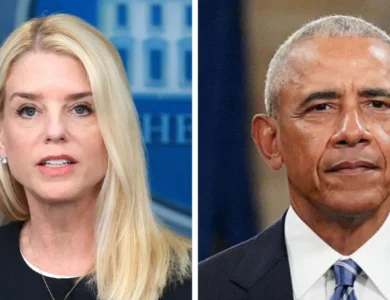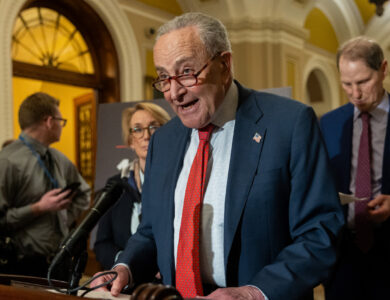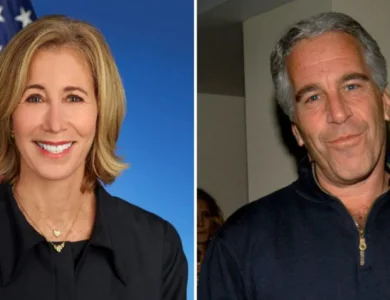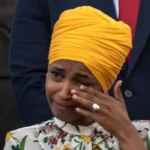Supreme Court Rules On Trump’s ‘Birthright Citizenship’ Order
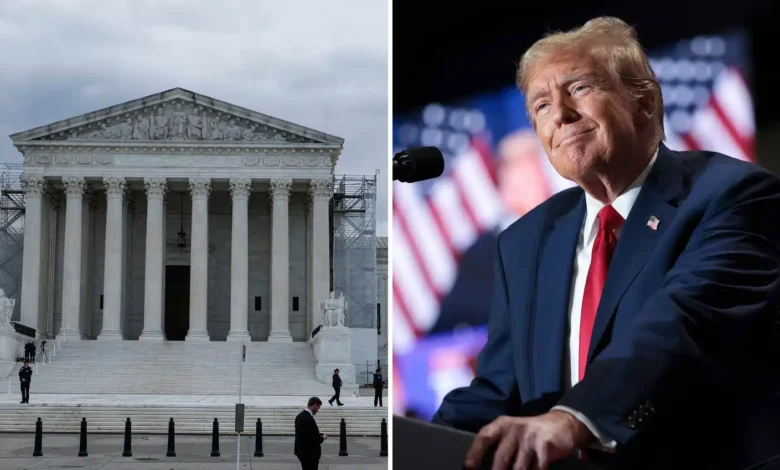
The U.S. Supreme Court has issued its ruling on President Donald Trump’s early executive order ending birthright citizenship for the children of illegal immigrants.
Trump has scored a big win in the Birthright Citizenship Case. Not on the merits, but on whether a universal injunction is permitted. This is hugely significant in every case with universal injunctions.
Senior Legal Correspondent Margot Cleveland explained what this means, “US Supreme Court allows Trump’s executive order restricting birthright citizenship to go into effect in some areas of the country for now by curtailing federal judges’ ability to block the president’s policies nationwide.”
Read more: ‘It Is So Ordered…’ Judge Takes Blowtorch To Biden – Trump Celebrates MASSIVE Win
The Supreme Court heard oral arguments in the case in May after three lower federal courts have issued nationwide injunctions against the order’s implementation.
In an executive order signed on Inauguration Day, Trump declared that the 14th Amendment provision granting U.S. citizenship to children born on American soil applies only to those with at least one parent who is a citizen or permanent resident.
If it were to be implemented, Trump’s policy would deny citizenship at birth to an estimated 255,000 babies born annually in the U.S. to illegal immigrants or temporary visa holders, according to the Migration Policy Institute.
Read more: Shocking Democrat Collapse: Trump Turning Historically Blue State RED
Under the 14th Amendment, ratified in 1868, “all persons born or naturalized in the United States, and subject to the jurisdiction thereof, are citizens of the United States.” For over a century, this text has been interpreted to grant citizenship at birth to all individuals except for children of foreign diplomats, the WSJ reported.
But proponents of Trump’s order argued that the historical context of the amendment was to grant citizenship to the children of former slaves and that the provision has since been abused by illegal migrants who exploit it to gain a foothold in the U.S. by having a child on American soil.
Trump’s executive order is also based on the argument that illegal immigrants are not “subject to the jurisdiction” of the U.S. for citizenship purposes, meaning their children should not be granted citizenship at birth.
The White House asserts that the citizenship clause was designed to overturn the Supreme Court’s infamous 1857 decision in Dred Scott v. Sandford, which ruled that black people could not be citizens, but did not extend citizenship to foreigners without permanent legal residency.
Read more: BUCKLE UP: James Comey Has ANOTHER Huge Problem After ‘Trump Threat’
In 1995, in response to proposed legislation that would eliminate birthright citizenship for children of unauthorized immigrants, the Justice Department advised that such a change would require a constitutional amendment. However, Trump has long speculated about the possibility of restricting birthright citizenship.
“It was always told to me that you needed a constitutional amendment. Guess what? You don’t,” he said in a 2018 interview. “It’s in the process. It’ll happen, with an executive order.”
Democratic-led states and immigrant advocacy groups filed multiple lawsuits to overturn Trump’s order, and federal judges in Maryland, Massachusetts, and Washington state swiftly blocked it, ruling it likely unconstitutional and forbidding its nationwide implementation.
Read more: Republicans Go ROGUE – Backstab Trump When He Needed Them MOST
In February, a pair of law professors from Georgetown Law School and the University of Minnesota dropped a bombshell on Democrats who mocked Trump’s order.
The professors penned an opinion piece for The New York Times that likely shocked the publication’s liberal readers, who were greeted with a headline that said, “Trump might have a case on birthright citizenship.”
“When they finally consider this question, the justices will find that the case for Mr. Trump’s order is stronger than his critics realize,” the professors said in reference to a case that is likely to reach the U.S. Supreme Court.
When it comes to illegal immigrants, the Amendment gets tricky, they said in the piece.
Read more: Supreme Court Rules Against Trump Deportations – What Happened Next Is WORSE
“Has a citizen of another country who violated the laws of this country to gain entry and unlawfully remain here pledged obedience to the laws in exchange for the protection and benefit of those laws?” the professors said.
